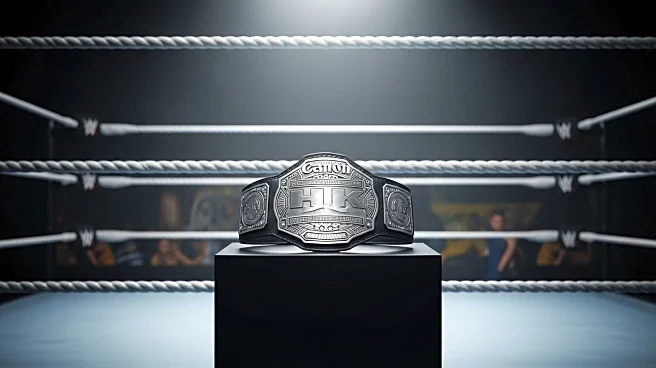What's Happening?
Lance Anoa'i has announced his departure from WWE, having never officially debuted due to injury setbacks. Anoa'i, part of the Anoa'i wrestling family, shared his decision on social media, indicating a 30-day no-compete clause. Despite signing with WWE last November, injuries prevented him from appearing on television. Anoa'i expressed his commitment to continue wrestling, highlighting his 15-year experience on the independent circuit. His departure follows reports of multiple injuries, which hindered his ability to perform. Anoa'i's wrestling career includes appearances in MLW and Pro Wrestling NOAH, and a notable match against Shane McMahon on Raw in 2019.
Why It's Important?
Anoa'i's exit from WWE underscores the challenges wrestlers face with injuries and their impact on career progression. His departure may affect WWE's talent pool, particularly in NXT, where new wrestlers are developed. Anoa'i's return to the independent circuit highlights the resilience required in professional wrestling, offering insights into career sustainability outside major promotions. For WWE, managing talent health and recovery is crucial to retaining promising athletes, influencing their talent development strategies. Anoa'i's decision may inspire other wrestlers facing similar challenges, emphasizing adaptability and perseverance in the industry.
What's Next?
Anoa'i plans to resume his wrestling career on the independent circuit, seeking new opportunities to perform. His announcement of accepting bookings suggests active engagement with the wrestling community, potentially attracting interest from other promotions. WWE may continue to evaluate their talent management practices, focusing on injury prevention and recovery support to retain emerging stars. The wrestling industry may observe Anoa'i's progress, considering his experience and family legacy as factors in his career trajectory.
Beyond the Headlines
Anoa'i's departure raises ethical considerations regarding athlete health management in wrestling. The long-term effects of injuries on wrestlers' careers and lives are critical, prompting discussions on improving medical and career support within major promotions. This situation may influence industry standards, advocating for enhanced support systems for injured athletes.









